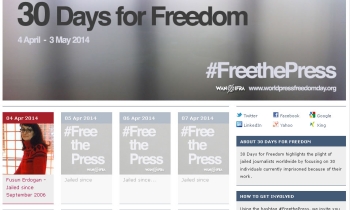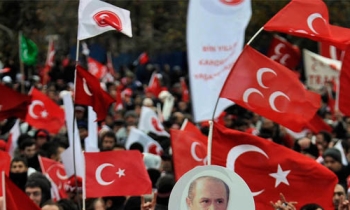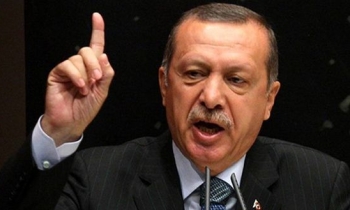The Chadian government effectively forced the country’s only permanent foreign correspondent to leave the country on Thursday after withdrawing her work permit without explanation, the Committee to Protect Journaliusts (CPJ) has reported quoting local journalists.
Sonia Rolley, a journalist reporting for several France-based media outlets, including Radio France Internationale (RFI), Agence France-Presse (AFP), French daily Libération and international television news channel France 24, left the capital N’Djamena after authorities notified RFI on Tuesday that her work permit had been pulled, Rolley told CPJ from Paris Friday.
Rolley's accreditation has been withdrawn "definitively," Chadian Communications Minister and government spokesman Hourmadji Moussa Doumgor told AFP earlier this week.
“It is outrageous that the government should expel a foreign correspondent without offering an explanation,” said Joel Simon, CPJ Executive Director. “Chadian authorities clearly want to silence a prominent correspondent who whose coverage was widely followed at home and abroad.”
The French foreign ministry said it "regretted" the decision. "We intervened several times at various levels with the Chadian authorities to dissuade them from making a decision leading to the departure of Madame Sonia Rolley," said a foreign ministry spokeswoman. She declined to comment when asked if the move would have implications for relations between the two countries.
Chadian authorities had suspended Rolley’s work permit on February 15, justifying the measure by citing the nationwide state of emergency following a rebel attack on N’djamena, according to CPJ research. The emergency declaration also included media censorship. RFI had tried to persuade the government to lift the suspension once the emergency ended earlier this month; Rolley had remained in Chad during that time.
The decision did not appear to be linked to any particular story, but Rolley’s reports are widely heard and read in Chad and, thus, are highly scrutinised by the government. In statements to CPJ and in press reports, representatives of RFI, AFP, France 24, and Libération praised Rolley for her professionalism.
AFP director of information Denis Hiault sent a letter of protest to the communications minister, saying the decision was "unjustified" and that Rolley had "shown professionalism, rigour and objectivity in her work."
RFI said in a statement that it deplored the decision and underscored that Rolley had "always covered Chadian news with rigour and professionalism, in conditions that were at times very difficult." RFI does not plan to replace Rolley with a permanent correspondent but will dispatch reporters there according to editorial needs, station spokesman Anthony Ravera told CPJ.
For Rolley, who had been reporting from Chad since October 2006, it was déjà vu. The journalist was forced to leave Rwanda in June 2006 after the government refused to renew her visa without explanation. A few months later, Rwanda indefinitely banned RFI following a public row with France over responsibility for the 1994 genocide.
Earlier this month, CPJ wrote to President Idriss Deby to express alarm at the increasing restrictions against Chad’s once-vibrant independent media, particularly following the rebel attack in early February. Fear of government reprisals, threats, the closure of a prominent radio station and amendments to the press law criminalising critical coverage have prompted at least 14 independent Chadian journalists to flee into exile in recent weeks, according to CPJ research.









